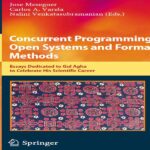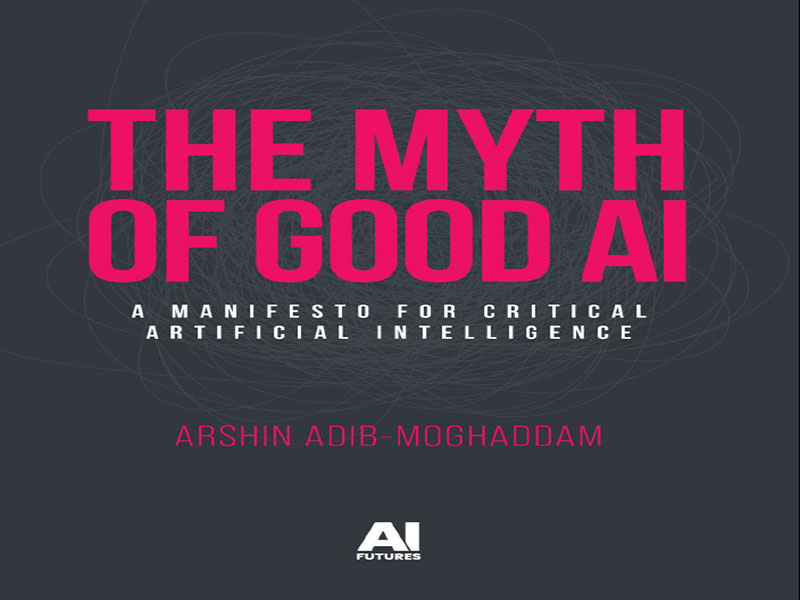- عنوان کتاب: The Myth of Good AI -A Manifesto for Critical Artificial Intelligence
- نویسنده: Arshin Adib-Moghaddam
- حوزه: اخلاق در هوش مصنوعی
- سال انتشار: 2025
- تعداد صفحه: 180
- زبان اصلی: انگلیسی
- نوع فایل: pdf
- حجم فایل: 1.39 مگابایت
«حقیقتی هست و دروغی هم هست». من این عبارت را از بخشی بهخصوص جذاب و در عین حال ناراحتکننده از تریلر فیلم رمان ۱۹۸۴ اثر جورج اورول برداشت میکنم.۱ در آنچه احتمالاً مشهورترین تصویر از آیندهای دیستوپیایی است – که در بهترین سنت اندیشه ضد تمامیتخواهی بریتانیایی نوشته شده است – جایی که تفکر آزاد یک جرم فکری محسوب میشود، هنوز جایی برای مقاومت وجود داشت، دقیقاً به این دلیل که مرز بین درست و غلط هنوز قابل مشاهده بود، هنوز هم میتوانست درک شود و به عنوان کاتالیزوری برای رهایی استفاده شود. این نمونه خوبی از قطعیت جهانی است که از آن جدا شدهایم. جامعه هذیانی که در آن زندگی میکنیم شبیه یک دروغ کاملاً صحنهسازی شده است که ما را متقاعد میکنند آن را به عنوان واقعیت بپذیریم. درک چگونگی پیدایش این دروغ و چگونگی بدتر شدن پیامدهای آن توسط هوش مصنوعی برای جامعه، موضوع این کتاب است. تکنوپلیتیک جدید، که توسط این شیفتگی سیریناپذیر به قدرت هوش مصنوعی که توسط شرکتهایی مانند X (توییتر)، گوگل، مایکروسافت و متا به بازار عرضه میشود، هدایت میشود، مکانیسمی است که از طریق آن سراب واقعیت به گونهای کاملاً سازمانیافته خلق میشود که مرزهای درک سنتی ما از حقیقت و دروغ، قدرت و مقاومت، ذهنیت و عینیت، علم و داستان را محو میکند. برادر بزرگ دیگر فقط از بیرون ما را تماشا نمیکند. کتاب حاضر نشان خواهد داد که چگونه برادر بزرگ خود را عمیقاً در قوای شناختی ما جای میدهد، تقریباً مانند میکروبی در نورونهای لوب پیشانی ما، جایی که عملکردهای شناختی ما پردازش میشوند. به همین دلیل است که من این را اولین مفهوم از مفاهیم خود برای درک جامعهی هذیانی، روانرمزگذاری مینامم. اورول نمیتواند به ما کمک کند، و همچنین فیلسوف مشهور پساساختارگرای فرانسوی، میشل فوکو، یکی از بزرگترین ذهنهای قرن بیستم، نمیتواند. آنچه او زیستقدرت مینامید، از قبل مزاحم بود، زیرا فوکو قدرت را به عنوان یک پدیدهی شناور که در همه جا حاضر است، مفهومسازی کرد. قدرت به عنوان یک پرتابه که بدنهای ما را به شیوهای بسیار انعطافپذیر و پیچیده، نظم و انضباط میدهد.2 اما حتی زیستسیاست فوکو نیز سادهلوحانه بود و بیش از حد به اشکال خوشخیم حکومتداری در نیمه دوم قرن بیستم وابسته بود. سراسربین – آن سازه معماری معروف که توسط جرمی بنتام، اصلاحگر اجتماعی بریتانیایی، در پایان قرن هجدهم به عنوان «زندان مدرن» توسعه یافت – ذرهای از کنترل بسیار جزئی که هوش مصنوعی بر ما اعمال میکند را توضیح نمیدهد.3 فوکو از سراسربین به عنوان استعارهای برای توضیح چگونگی «اصلاح» فرد مدرن به یک بلهگوی منضبط استفاده کرد. مدرنیته (اروپایی) با فرض اینکه ما دائماً تحت نظر هستیم، پیچیدگیهای انسانی ما را به نفع یک ذهنیت مطیع و سبک زندگی فایدهگرایانه کنار گذاشت. این واقعیت اجتماعی ما در حال حاضر است. درک این نبرد با یک عدم آزادی هذیانی و القا شده توسط دیجیتال، اولین قدم برای بازپسگیری فردیت، استقلال و عاملیت ما به عنوان شهروندان دموکراتیک است. بله، این آزادی است که در خطر است، حتی اگر این حرف در این مرحلهی اولیهی کتاب حاضر، بیش از حد نامعقول به نظر برسد.
‘There is truth and there is untruth’. I am taking this phrase from a particularly compelling yet also discomforting section of the trailer for the movie of George Orwell’s novel 1984.1 In what is probably the most famous depiction of a dystopian future – written in the best tradition of British anti- totalitarian thought – where free thinking is considered a thought- crime, there was still room for resistance precisely because the delineation between right and wrong was still visible, could still be grasped and used as a catalyst for emancipation. This is a good example of the certainty of a world from which we have departed. The delirious society that we are living in resembles a perfectly staged untruth that we are persuaded to accept as reality. To understand how this untruth came about and how Artificial Intelligence worsens its outcomes for society is the topic of this book. The new techno- politics, driven by this insatiable infatuation with AI power marketed by companies such as X (Twitter), Google, Microsoft and Meta, is the mechanism through which that mirage of a reality is created in such a perfectly organised way that it blurs the lines of our traditional understandings of truth and untruth, power and resistance, subjectivity and objectivity, science and fiction. Big Brother is not only watching us from the outside any more. The present book will show how Big Brother is lodging himself deeply inside our cognitive faculties, almost like a microbe within the neurons of our frontal lobe, where our cognitive functions are processed. This is why I call this first of our concepts for understanding the delirious society psycho- codification. Orwell cannot help us, and nor can the famous poststructuralist French philosopher Michel Foucault, one of the greatest minds of the twentieth century. What he called biopower was already intrusive, as Foucault conceptualised power as a gliding phenomenon that is omnipresent; power as a projectile that would discipline and govern our bodies in an immensely flexible and sophisticated manner.2 But even Foucault’s biopolitics was naive, too hinged upon the benign forms of governmentality in the latter half of the twentieth century. The panopticon – that famous architectural construct developed by the British social reformer Jeremy Bentham at the end of the eighteenth century as the ‘modern prison’ – does not begin to explain the immensely minute control that Artificial Intelligence exerts upon us.3 Foucault used the panopticon as a metaphor to explain how the modern individual was ‘reformed’ into a disciplined yes- sayer. By assuming that we are constantly watched, (European) modernity ordered away our human complexities in favour of a docile mentality and utilitarian lifestyle. This is our social reality at the moment. To grasp that battle with a digitally induced, delirious unfreedom is the first step towards reclaiming our individuality, autonomy and agency as democratic citizens. Yes, it is freedom that is at stake, even if this may sound too preposterous a statement at this early stage of the present book.
این کتاب را میتوانید از لینک زیر بصورت رایگان دانلود کنید:
Download: The Myth of Good AI -A Manifesto for Critical Artificial Intelligence





































نظرات کاربران